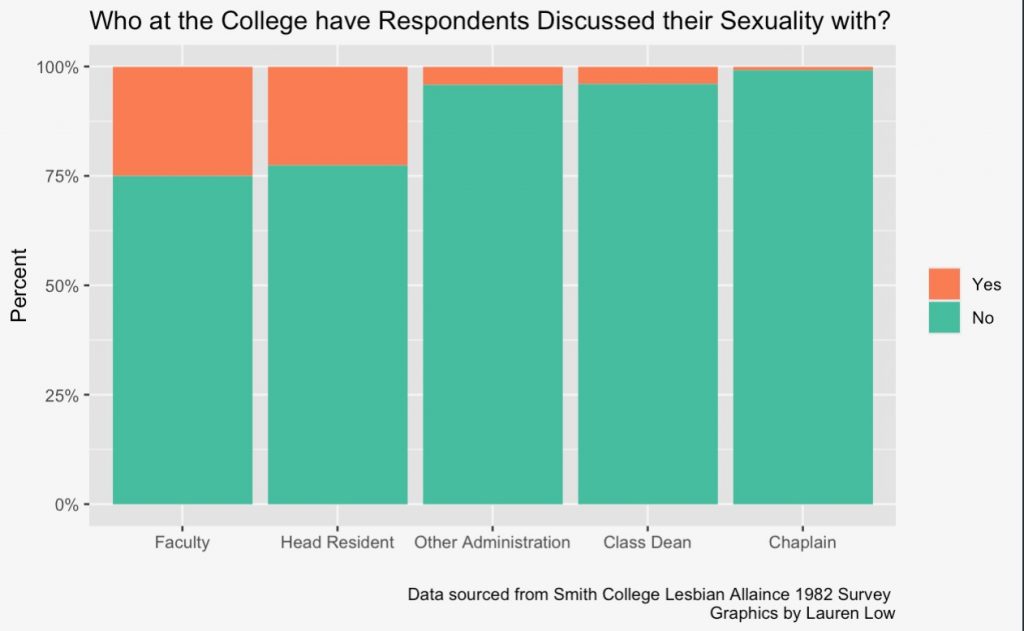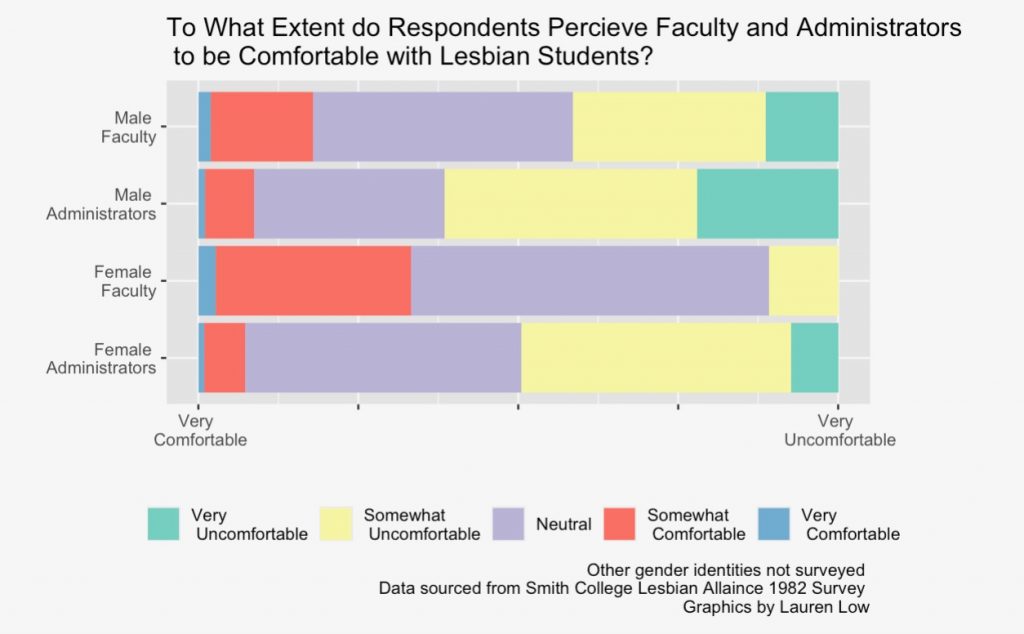With public controversies over Hover House and the administrations’ responses to homophobic incidents, the relationship of Smithies to the faculty and administration was clearly fraught. Though lesbian students were gaining visibility and acceptance on campus during the 1980s, the response from the staff of Smith college was certainly mixed. According to the extended response parts of the survey, one professor referred to lesbians as “the perversion that has been gaining strength on campus” and a Smith College counselor advised another student to leave Smith to “get away from the lesbian influence.”1 Some students said that they had issues surrounding sexuality with the financial aid office. 2 More than outright hostility, students noted silences around talking about lesbianism.
Not all the respondents were upset about this lack of conversation. One noted, “I am not close enough to any faculty member to discuss such a personal matter [their sexuality].” Another stated, “I simply prefer separating “private” sexuality/relationships from academia.” 3 Another group of students mention talking to supportive professors and counselors that helped students understand their sexuality, and some spoke about talking to faculty that were gay themselves. One respondent called conversations about their sexuality with faculty “Validating, reaffirming, supportive, encouraging.” Another noted, “It was helpful, in that [gender deleted] was cool with it so we could involve [sexuality] in a larger discussion comfortably and supportively.” 4 This graph below shows the respondent’s tendency to talk to different groups employed by the college about their sexuality.

The respondents reported that not all groups of staff were equally supportive or unsupportive. The graph below shows how comfortable or uncomfortable the respondents perceived faculty members and administrators to be about lesbianism. The respondents perceived female faculty to be much more comfortable with lesbian students than male faculty and all faculty to be more comfortable than administrators.

For the respondents, navigating their sexuality with administration and faculty proved to be a complicated experience with mixed results. What do you think the attitude of faculty and administrators is towards lesbianism and LGBTQ issues is today? Have you had conversations with faculty or administrators about your sexuality or gender identity?

